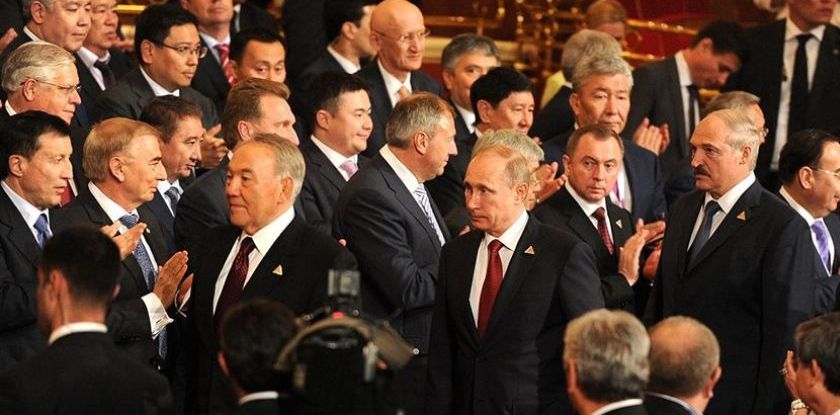In the previous articles of this series, the focus was on the ruling elite, as if we almost left the rest of the citizens of the country out of the equation. However, as history shows, without an engaged and conscious participation of the majority of population in the reforms, it is impossible to both achieve a countrywide leap into the future and preserve national sovereignty.
For this reason, it is worth asking a question of when and how will regular Kazakhstan citizens will prove a point that the people are the real source of national power.
Judging from the historical experience, we can speculate that it might happen when:
- Firstly, the political system and the government weaken to the point of falling apart from the inside, the way it happened in Soviet Union and eastern bloc countries in 1989-1991
- Secondly, the top of the ruling elite will be so discredited, that all social classes and political parties and forces will unite against it, ultimately overthrowing it, the way it went down in the Russian empire a hundred years ago
- Finally, the ruling elite realizes the dead-end position and futility of authoritarian politics and starts political reforms from the top, the way it happened last century in Spain
Still, a question arises, that nobody can answer: how will people react to new political prospects? One thing we are sure about: You can’t bet on the possibility of republic of Kazakhstan undergoing political transformations, similar to those that took place in USSR after Mikhail Gorbachev and his allies at CPSU introduced perestroika. In our opinion, this is not a good move for a couple of reasons. Firstly, the quality of population has declined for various reasons. Secondly, the country has lost around four million of mostly highly skilled citizens, due to emigration to nearby and overseas countries. Moreover, most of these emigrants have settled well in those countries, which
is evident by the minimal number of returnees.
In addition, we think that the quality of the current population of Kazakhstan is not much different than the one found in modern day Arabic states. In those countries, however, chaos has erupted as an outside meddling from USA and its European allies resulted in the liquidation of authoritarian political regimes. Previously existing states fell apart, and even though centers of power exist, they only control a fraction of a territory. The civil war is being waged, in which the main part is being played by formations based on tribal and ideological allegiance; there is a rise of Islamic radicals that want to build a religious state and denounce any western or democratic ideals.
It is possible that the reaction in Kazakhstan will be different. In the past decades, the quality of education and medical and social services has plummeted, added to this there was massive and dramatic marginalizing of millions of Kazakh citizens, who were devoid of their usual lifestyle and left to survive, without a full-time job or income, or to migrate from villages in search of a better life. Thus, we might have a repetition of what happened in Syria, Libya, Iraq, Egypt and Yemen. Despite this, the events in neighboring Kyrgyzstan give us some hope.
We really hope that out pessimistic evaluation of the quality of Kazakhstani population and of the sad turn of events in the case of the crash of authoritarian political regime, won’t come true. But the fact that it is the general population that will pose one of the main risks to Kazakh republic, if the ruling power dramatically weakens, is undeniable.
In these conditions the situation in the country becomes highly critical:
- A stagnating economy, that even in the most favorable outcome will only grow a few percentage points a year, without providing a recovery of the pre-crisis quality of life enjoyed by the majority of Kazakhstan’s population
- Sub-par ruling elite that is primarily worried about their own survival and about defeating their fellow inner-elite competitors
- Backwards population, that is not ready not only to defend their interests and rights, but to even acknowledge their existence
Will anyone among Kazakhstani top ruling elite ever understand the scope, depth and problematic nature of the current economic, social and political crisis, its systemic and insolvable nature?
We suspect that the answer is no. A reluctance to think and the necessity to constantly deal with current burning issues – personal, governmental and regional, turns Kazakhstani ruling elite blind. Nonetheless, not noticing the words Mene, Tekel, Fares carved in blood on the pages of history, will become harder and harder.




